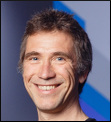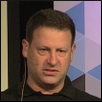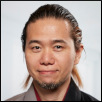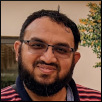
 About JCP
Get Involved
Community Resources
Community News
FAQ
Contact Us
About JCP
Get Involved
Community Resources
Community News
FAQ
Contact Us

|
 |
Java Community Process: Executive Committee Elections Nominees for 2023

|
The 2023 Fall Executive Committee Elections process is now complete. The EC Elections process was launched in June 2000. This election was hosted by Votenet and
closed on 20 November 2023 at 11:59 PM Pacific Standard Time.
The elections results are published.
Congratulations to the newly elected and re-elected EC Members, and thank you to all the nominees and JCP Members for participating in this year's election!
The recording of the Meet the JCP EC
Candidates Zoom webinar from October 26 is now available.
Please refer to the Java Community Process EC Elections page for more information on the Executive Committee Elections.
Please refer to the Executive Committee Information page for more information on the current Executive Committee.
What follows are the qualification statements provided by the candidates for the Executive Committee, along with a
brief biography of the person who would serve as the Member's representative on the Executive Committee if elected,
and a position statement when one is provided.
| 2023 EXECUTIVE COMMITTEE RATIFIED SEAT CANDIDATES |
Arm Ltd
|
Arm is the leading technology provider of processor IP, offering the widest range of processors to address the performance,
power, and cost requirements of every device. Our involvement in Java began in 2002, when we were involved in mobile Java standards.
Later, Arm first joined the JCP as part of the ME EC in 2012, which was later merged with the JSE EC. With Arm technology expanding
into the cloud, we have more recently been involved in the OpenJDK and have contributed to projects such as ZGC, Panama and the
Vector API, as well as providing optimisations to exploit the latest processors and instruction set features. We would like to continue
to help the JCP EC oversee the evolving Java standards, helping ensure they continue to adapt to the demands of our developers and users
and the hardware they run on.
|

Stuart Monteith
|
Stuart Monteith is a principal software engineer in the Software group at Arm in Cambridge, UK. There he has worked on virtual machines,
most recently OpenJDK, for a time under the auspices of Linaro. Prior to this he worked in IBM with the JVM on various Linux platforms and
other projects such as JSR-326. He has worked with Java since 1996 during his degree course at the University of Strathclyde.
|
| | |
Fujitsu Limited
|
Fujitsu has long been a staunch advocate and implementor of Java, deploying it across a diverse and unparalleled range of platforms,
from mobile phones to mainframes. We take pride in offering the Jakarta EE compatible implementation, Interstage Application Server,
a cornerstone for constructing enterprise mission-critical systems. From the inception of the JCP Executive Committee, Fujitsu has
been a dedicated member, actively participating in and supporting over fifty JSRs. Notably, our involvement in JSR 355/358/364 has
been instrumental in refining the JCP process. Fujitsu has played an active role in the Expert Groups that created JSPA 2, Java EE 7,
and other key SE and EE umbrella JSRs, significantly influencing the evolution of Java. In recognition of our contributions, we hosted
the JCP EC F2F meeting in Japan in 2019 and were honored with the JCP Award for “Long Standing EC member” at CodeOne 2019. Additionally,
our active contributions to the OpenJDK and GlassFish communities have been pivotal in fostering the growth of Java ecosystems. Moving
forward, our unwavering goal is to advance Java technologies and secure Java’s premier position in cloud-native environments.
|

Kenji Kazumura
|
Kenji Kazumura is currently employed at Fujitsu Limited as a Java Architect, overseeing the development of the Interstage Application
Server, a Jakarta EE compatible product. He has played a significant role in the Expert Group of JSR 204 and 382 and boasts more than
twenty years of experience in building a plethora of mission-critical enterprise Java systems, spanning sectors such as banking, finance,
and manufacturing. Kenji is also actively involved in the Jakarta EE and MicroProfile communities, working to accelerate the growth of
cloud-native Java ecosystems.
|
| | |
IBM
|
IBM and Red Hat have been part of Java standardisation for over a decade, representing the
best values of open source development, communities and innovation. Together we bring a
wealth of experience in growing vibrant open source communities and feeding that experience
into a wide variety of standards efforts, such as those at the JCP, Eclipse, OASIS and CNCF.
Red Hat and IBM work extensively in OpenJDK, and lead platform work taking place in Jakarta,
MicroProfile, Adoptium, and GraalVM. We are committed to broadening the JCP membership
and streamlining the JCP Program to help continuously improve the JCP processes, executive
committees and approach to openness.
IBM Position Statement (.pdf file)
|

Mark Little
|
Mark Little leads the technical direction, research, and development for Red Hat JBoss Middleware. Prior to taking over this role in 2009,
Mark served as the SOA technical development manager and director of standards. Additionally, Mark was a chief architect, and co-founder at
Arjuna Technologies, a spin-off from HP, where he was Distinguished Engineer. He has worked in the area of reliable distributed systems since
the mid-80s with a PhD in fault-tolerant distributed systems, replication, and transactions. Mark is also a professor at Newcastle University
and Lyon University.
|
| | |
Intel
|
A significant population of developers and end-users run Java on Intel architecture platforms, providing Intel with unique perspectives
on the Java platform, that of software and hardware working together to move Java forward. Intel has actively contributed to the JCP
since 2002, participated in more than 20 JSRs, worked with major JVM vendors on Java optimizations, published many research papers and
participated in major conferences. Intel is actively contributing to a number of forward looking OpenJDK efforts such as the Panama project.
|

Steve Dohrmann
|
Steve Dohrmann is a Senior Staff Software Engineer at Intel. He has worked on various Java projects over the past 20 years and is passionate
about Java and its future. His Java development work includes the Java Media Framework, mobile agent software, secure collaboration software,
a cryptography framework, access to foreign memory, and parallel programming tools for Java.
Intel Position Statement (.pdf file)
|
| | |
SouJava - The Java Users Society
|
Is Java pivotal for your company? Do you believe in an open, transparent Java evolution? Does a community-centric JCP
process resonate with you? Yearn to influence Java's future in your career? Desire an open, diverse Java ecosystem?
SouJava, the Java Users Society, champions an open JCP. Ensuring your role in Java's evolution and benefits.
As the inaugural JUG in the JCP, SouJava, founded in 1998, is a beacon for the Java developer community in Brazil.
With over 40,000 members nationwide, it actively advocates and facilitates Java technology adoption in both public
and private sectors.
SouJava views JCP as the bedrock of Java's success. It strives for balance, transparency, and equal representation.
Championing the developer's voice, it mediates vendor disputes and upholds the community's interests.
As an open-source advocate, SouJava ensures FOSS projects thrive, fostering contributions and sharing results. It's
committed to JUG participation in the JCP and nurturing the next-gen Java developers.
Being the first JUG in the Program, SouJava holds an EC seat for over 12 years. It's catalyzed the Brazilian
Government's engagement with the JCP, opening doors to open source, standards, and Java.
SouJava pledges to infuse transparency and participation into the JCP, embracing open source, standards, and Java
technology. It seeks your support as we expand our role in the Java community.
SouJava Position Statement (.pdf file)
|

Bruno Souza
|
Bruno Souza is a Java Developer and Open Source Evangelist. As founder and coordinator of SouJava
(Sociedade de Usuários da Tecnologia Java; Java Technology Users Society) and leader of the Worldwide Java User Groups
Community at Java.net, Bruno helped in the creation and organization of hundreds of JUGs worldwide. A Java Developer
since the earliest days of the technology, Bruno took part in some of the largest Java projects in Brazil. Bruno is a
Principal Consultant at Summa Technologies, and has extensive experience in large projects in the Government, finance and
service industries. A Cloud Expert at ToolsCloud, he promotes and develops cloud-based systems using Java. Nurturing developer
communities is a personal passion, and Bruno worked actively with Java open source communities and projects. Bruno Souza
is an Honorary Director of the Open Source Initiative (OSI), served many years as President of the innovation-focused
Campus Party Institute, and is host and mentor of The Developer Conference, the largest gathering of developers in Latin America.
|
| | |
| 2023 EXECUTIVE COMMITTEE ELECTED SEAT CANDIDATES |
Amazon.com Services, Inc
|
Java is one of the popular languages in use by Amazon and Amazon Web Service (AWS) customers. As such we are committed to supporting Java
and the OpenJDK project. Amazon has a deep Java history, we are running tens of thousands of services, including some of the world's largest
Java deployments. Amazon Corretto a no-cost, multi platform, production-ready distribution of OpenJDK is available to any Java developer
regardless of where their code runs. AWS provides Amazon Corretto as a default implementation for AWS services running user Java code.
Amazon is among the biggest external OpenJDK contributors. We are contributing to the OpenJDK tip, 8,11,17, and 21 update projects and
are a member of the OpenJDK Vulnerability Group. We've released ACCP, the Amazon Corretto Crypto Provider, which drastically improves the
performance of cryptographic operations and are developing Generational Shenandoah (JEP 404), a generational extension for the Shenandoah
garbage collector which enables Shenandoah to take more load and improve latency as well as Lilliput (JEP 450) which will reduce the size
of object headers down to 64 bits to reduce heap size, improve deployment density, increase data locality, and reduce latency. Since the
last JCP election in 2021 we’ve increased the number of Amazon’s OpenJDK Authors by 8 and the number of Committers and Reviewers by 3 each.
We took ownership and are currently actively enhancing and maintaining several essential open source tools for the Java developer community
like AsyncProfiler, Java Micro Harness (JMH), and Java Object Layout (JOL). In the JCP EC our main focus will be to represent the voice of
developers and users of applications as small as a few lines of Lambda functions up to the largest enterprise applications. We will continue
to widen our investments in security, stability, modernization, performance, and observability of Java applications and the JDK.
|

Volker Simonis
|
Volker Simonis is a Principal Software Engineer in the Corretto team at Amazon Web Services. Volker joined the OpenJDK project in 2007, and
has since been a passionate contributor to the Java Virtual Machine. Volker has served on the OpenJDK Governing Board, and is an OpenJDK Member,
Reviewer, and Committer. Before Amazon Volker worked for SAP, Sun Microsystems, and the University of Tübingen, from where he holds a Master's
and PhD degree in Computer Science. Volker represented SAP and Amazon on the JCP Executive Committee and was a member of the JCP Expert Groups
for Java SE 9 to 13. He is a passionate speaker at conferences around the globe and can be contacted on X (formerly Twitter) as @volker_simonis.
|
| | |
Azul Systems
|
Azul is an independent company dedicated solely to building and supporting Java Runtimes and JDKs. The popular Azul Zulu builds of OpenJDK
are the longest-standing, freely available, and consistently updated builds. Zulu builds are available for JDK 8, 11, 17 and 21 and support
all major flavors of Linux, as well as Windows and Mac OS. In addition, Azul's Prime JVMs offer superior performance and efficiency, delivering
predictable execution, speed, and scalability, consistently reducing the overall cost of Java-based infrastructure.
While on the JCP EC, Azul has actively advocated for community interests within the EC and was recognized as "JCP Member of the Year." in 2013.
Azul took decisive and successful positions in protecting community rights and access to technology, including the OpenJDK Community TCK.
Azul believes that the JCP should be influenced by the developers who use the technology standards, not limited to the companies that define
and form those standards.
Azul has been an enthusiastic OpenJDK community member and was the first non-Oracle company to successfully author an OpenJDK JEP included in
the Java specification (JEP 285). Azul is a crucial contributor to OpenJDK update projects, especially regarding security patches. As an early
member of the OpenJDK Vulnerability Group, Azul has been responsible for a significant portion of the security updates delivered in the various
community-maintained OpenJDK updates projects, including 8u, 11u, and 17u.
Azul recently contributed a project to OpenJDK for Coordinated Restore at Checkpoint (CRaC). This provides a way of delivering extremely fast
start-up of JVM-based applications from a pre-determined point without losing any of the performance benefits of JIT compilation. Azul is
making CRaC-enabled Zulu builds available for free and hopes to ultimately have it included as part of the Java platform.
|

Gil Tene
|
Gil Tene is CTO and co-founder at Azul Systems and has been active on the JCP EC since 2011 and was recognized as "JCP Member of the Year".
Gil is an official "JavaOne Rockstar" and Java Champion and a frequent speaker at developer conferences and JUGs. Gil has been building virtual
machines for over 25 years. He founded Azul Systems with the goal of eliminating common Java responsiveness and deployment scalability barriers
and pioneered several Java firsts, including Pauseless Garbage Collection, which has since made its way into modern collectors in the form of
both C4 and ZGC. Outside of his day job, Gil has remained an active OSS developer and contributor for over 20 years. In past lives, he also
designed and built operating systems, network switches, firewalls, and laser-based mosquito interception systems.
|
| | |
Google
|
Google believes open source solves real-world problems for everyone. Google has supported open source innovation, collaboration, and
sustainability throughout the years. We have a strong track record of contributing to the open source community with projects such as
Chromium, Kubernetes, Cloud Native Computing Foundation as well as prior participation in the JCP Executive Committee. We have been
involved with Java and the JCP for over 20 years through our work on enhancements, standards and specifications. We want to actively
support the continued success of Java as a member of the Executive Committee.
Java is one of the most used programming languages at Google and it is extensively deployed across our business where we are among
the world leaders in the scale of deployments. Googlers continue to contribute back to the Java community in a dedicated effort toward
improving Java, and our team members have long been involved as contributors, leads and reviewers across numerous OpenJDK projects and groups.
As a member of the JCP EC, Google can work directly to ensure the interests of the broad group of Java users and the open source community
continue to be put first. We believe Java is important for the open source community and that it has a key place in our industry across
client, server and cloud environments. We would like to have an active role in guiding new growth, specs and features that provide a better,
faster, more secure, more stable and more user-friendly environment for the developer community.
Google is enthusiastic about the future of Java with the improvements that have been made and the changes that are yet to come. Election
to the JCP Executive Committee will allow us to play a bigger part in this journey and to help ensure this growth benefits all, from
the smallest and simplest instance, to the largest and most complex deployments.
Google Position Statement (.pdf file)
|

David Hensley
|
David Hensley works at Google where he currently runs the Java Platform team. David has worked with Java since its beta release in 1995.
He has led a vast array of Java based projects ranging from client side apps, embedded, java malware protection, service / protocol adapters,
interop for other languages and massively scalable server applications. David’s leadership in Java development has included holding architect
and leadership roles at SeeBeyond (acquired by Sun), Yahoo, Symantec, Google and multiple startups. Additionally David has been personally
involved with the JCP in the past, working as an expert group member on both JSR 311 (JAX-RS) and JSR 312 (JBI).
|
| | |
| 2023 EXECUTIVE COMMITTEE ASSOCIATE SEAT CANDIDATES |
GOJava
|
Java User Group from Goiás, Brazil.
Founded in Sep 2001, 3000+ subscribers, 200+ active members, 4 speakers and evangelists on regional amd national technology events.
JetBrains Community associate.
Monthly meetups on discuss and presenting JEP and framework news.
|

Rafael Souza
|
Rafael is graduated in Game Development and Software Architect at Betha Sistemas, one of the largest GovTech in Brazil.
Masters' student in Software Architecture.
Speaker and JUGLeader since 2016.
SCM and SCJP/OCA
|
| | |
Christian Grobmeier
|
As the CEO and sole developer at Grobmeier Solutions GmbH, I bring a unique blend of hands-on technical expertise and broad industry
knowledge to the Java ecosystem. With experience as a Java and Open Source professional, I deeply understand the technical and
community aspects of Java development. My ongoing commitment to making complex topics easy to understand reflects in my role as a
software trainer and author. I am passionate about contributing to an open, collaborative, and forward-thinking Java community.
My multi-faceted involvement in the Java ecosystem will add value to the JCP, and I am committed to contributing constructively
to the future of Java.
Grobmeier Position Statement (.pdf file)
|

Christian Grobmeier
|
Christian Grobmeier has been developing software since 1998, focusing on Java and open-source technologies. With experience
contributing to open-source projects, he values community-driven development and collaborative problem-solving. Leading Grobmeier
Solutions GmbH as its CEO and developer, Christian addresses real-world industry challenges through practical solutions. As a software
trainer and author, he aims to make complex topics accessible and understandable. With over two decades in the Java ecosystem, his
approach combines hands-on experience with a commitment to sharing knowledge.
|
| | |
Japan Java User Group
|
Japan Java User Group (JJUG) was established in April 2007 and has a membership of over 12,000 individuals. We conduct monthly seminars
and biannual conferences with a scale of over 1,000 participants. Additionally, we energetically support the enhancement and development of
Java technology in Japan, cooperating with Oracle's Java events and sponsoring local JUG events. Not only domestically, but through an annual
event called JOnsen Unconference, we also foster deeper interactions with international Java Champions and Java enthusiasts, striving to be a
bridge between Japan and the global Java community. JJUG has been engaged in community activities as a member of the JCP for several years.
To further broaden our activities and contribute to the world of Java, we kindly ask for your support and vote.
|

Shin Tanimoto
|
Shin Tanimoto is a Java Champion, Oracle ACE, and CTO of Everforth in Japan. He is a leader of JJUG and founded KanJava , a JUG in the
Kansai region. Shin has been a speaker at numerous conferences, including JavaOne, SpringOne Platform, Java Day Tokyo, and JCConf Taiwan.
He authored a book in Japanese for Java beginners titled "Java本格入門," which can be translated as "The Definitive Beginner's Guide to Java."
Currently, Shin is contemplating how to serve as a bridge between Japan and the rest of the world. Many techniques and areas of knowledge in
Japan are ingenious, yet not widely recognized globally. Shin aims to introduce these innovations to the world.
|
| | |
A N M Bazlur Rahman
|
Rahman Position Statement (.pdf file)
|

A N M Bazlur Rahman
|
With over a decade in the software industry, where my focus is predominantly on Java and its related technologies. I've been
honoured with the title of Java Champion, a recognition that I hold in high esteem. Outside of my regular job, I'm deeply involved
in community building—I founded and continue to moderate the Java User Group in Bangladesh and have been organizing Java-related
events since 2013.
My passion for sharing knowledge doesn't stop there. I've been named a Most Valuable Blogger (MVP) by DZone and serve as an editor
for Java Queue at InfoQ and Foojay.io. I've also authored five books on Java programming in Bengali, 3 of which have become
bestsellers in Bangladesh. Through these various channels, I aim to contribute to the Java community, both at a local and a global
scale. You can keep up with my latest thoughts and insights through various technology platforms and my active social media presence.
You can follow me on Twitter @bazlur_rahman and read my blog at
https://foojay.io/today/author/bazlur-rahman/
|
| | |
Zoran Sevarac
|
Zoran Sevarac is a Java Champion and co-lead of expert group for Visual Recognition API JSR381. His recent work has been focused on
strengthening Java for AI, and that is also the main motivation for his nomination for JCP.
|

Zoran Sevarac
|
Zoran Sevarac is a full-time professor of software engineering and AI at University of Belgrade. He has been a contributor to several
open source projects including Apache NetBeans, and founder of an educational AI software Neuroph (Duke's Choice Award Winner).
He is a member of Java champions and regular speaker at Java conferences.
|
| | |
Miroslav Wengner
|
Although Miro is primarily focused on the Java language, he actively helps engineers develop JVM-based distributed projects in
other platform languages such as Scala or Kotlin. Shares experiences with the community through feedback on actively running
projects in the ecosystem. Miro participates in many discussions across the Java environment that contribute to the future of
the ecosystem. He assists and supports JUGs communities through presentations or engagement.
|

Miroslav Wengner
|
Miro has been a member of the JCP program for a long time. He is an active contributor to the OpenJDK, Java Mission Control/Flight
Recorder project. Miro focuses on Java performance and maintainability. Contributed/contributes to various other open-source projects
like OpenTracing, Pi4J, etc. Miro co-authored the 2017 DukeChoice Award winning Robo4j project . He has been recognised as a JavaChampion,
a RockStar speaker. He shares insights from conferences (JCON, JavaOne, CodeOne, Devoxx, GeeCON, etc.) and blogging (FooJay, etc.). Miro
recently wrote the book Practical Design Patterns for Java Developers, published by Packt. He believes that the book contributes to the smooth
and efficient use of the new enhancements that are fully available in Java SE 21. Miro believes in the Java ecosystem and wants to help it
move forward!
|
| | |
ABOUT THE JAVA COMMUNITY PROCESS (JCP) EXECUTIVE COMMITTEE
Under the JCP 2.11 rules, the EC has resized. In 2021 and going forward, there will be 11 Ratified Seats, 4 Elected Seats, 2 Associate
Seats and the permanent seat held by Oracle America. Members serve 2-year terms that are staggered so that 8 or 9 of the 17 seats are
normally up for ratification/election each year.
The EC members guide the evolution of the Java technologies. The EC
represents a cross-section of both major stakeholders and other members
of the Java Community. Duties are: select JSRs for development, approve
draft Specifications for Public Review, approve Final Specifications,
review TCK appeals, approve Maintenance revisions and possibly defer
some features to a new JSR, approve transfer of maintenance duties
between members and provide guidance to the Program Management Office
(PMO). For more information on the EC, see the Executive Committee Info
page http://jcp.org/en/participation/committee.
2022 EC Elections Results
2021 EC Elections Results
2020 EC Elections Results
2019 EC Elections Results
2018 EC Elections Results
2018 EC Special Elections Results
2017 EC Elections Results
2017 EC Special Elections Results
2016 EC Elections Results
2015 EC Elections Results
2014 EC Elections Results
2013 EC Elections Results
2012 EC Elections Results
2011 EC Elections Results
2010 EC Elections Results
2009 EC Elections Results
2008 EC Elections Results
2007 EC Elections Results
2006 EC Elections Results
2005 EC Elections Results
2004 EC Elections Results
2003 EC Elections Results
2002 EC Elections Results
2001 EC Elections Results
2000 EC Elections Results
For more information on the JCP, see the JCP Overview page.
Contact the PMO for election questions at pmo@jcp.org.
|
 |
|